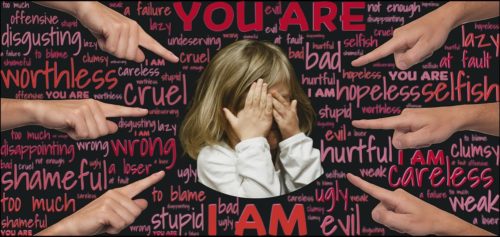Your Worst Enemies, Part Two
A Los Angeles Police Department study determined only 2% of the population was dangerous and harmful to society. Years earlier, L. Ron Hubbard determined it was 2.5% AND he observed another 17.5% of the population ACT LIKE antisocial personalities. Why? Because they are controlled by the 2.5% antisocials.
In other words, 20% of the people you know make trouble for you. One out of five people are not supporting you. Sadly, they are your enemies.
Once you discover which people in your life are antisocial, they then have less influence over you. You know who is stressing you out. You can safely ignore their advice.
On the other hand, 80% of the people you know are your friends. You can trust them. They are on your side. They hope you succeed.
“Your Worst Enemies, Part One” covers the first characteristic of the antisocial personality. These 20% speak with negative generalities.
“Everyone thinks you charge too much money. They say you’re really greedy.”
“No one likes your fake facts and stupid opinions.”
“America is terrified!”
Fortunately, 80% of the world do not use negative generalities.
“Most of your clients love you and are happy to pay your fees.”
“Sam is the only one who disagrees with you. Everyone else agrees with you.”
“America is a fantastic place to live.”
The second and third characteristics are covered below.
Antisocial Characteristic #2
“2. Such a person deals mainly in bad news, critical or hostile remarks . . .”
“ . . . there is no good news or complimentary remark passed on by such a person.” — L. Ron Hubbard
The social person is the opposite.
“The social personality is eager to relay good news and reluctant to relay bad.
“He may not even bother to pass along criticism when it doesn’t matter.”
“He is more interested in making another feel liked or wanted than disliked by others and tends to err toward reassurance rather than toward criticism.” — L. Ron Hubbard
Examples:
Antisocial: “Did you hear about the guy who blew his brains out last week?”
Social: “Did you hear about the guy who won the lottery last week?”
Antisocial: “You actually like that chicken? My mother’s chicken tastes much better.”
Social: “Great chicken! Thank you.”
Antisocial: “Everyone thinks you work too hard which is why you look so tired.”
Social: “Paul and I wish we could work as hard as you. We think you set an excellent example for us.”
Antisocial Characteristic #3
“3. The antisocial personality alters, to worsen, communication when he or she relays a message or news. Good news is stopped and only bad news, often embellished*, is passed along.
“Such a person also pretends to pass on ‘bad news’ which is in actual fact invented.” — L. Ron Hubbard (*embellish: add fictitious details)
Simply passing on bad news is not enough for antisocials. They prefer to make it seem even worse. Or, to get extra attention, they invent bad news!
Examples:
Bad Neighbor: “Marge’s husband left her and now she seems to have a different man’s car in front of her house every night!”
Bad Politician: “Unlike my opponent, we will never support child porn. They pretend to fight it, but according to our sources, they secretly like child porn. It’s true!”
Bad News Reporter: “New questions are surfacing about the death of John Smith. Was it really natural causes? Some say it’s another murder by the dark forces!”
The social person has a different approach.
“A social personality passes communication without much alteration and if deleting anything, tends to delete injurious matters.
“He does not like to hurt people’s feelings.” — L. Ron Hubbard
Examples:
Good Neighbor: “Marge is finally getting out and meeting some men. I couldn’t be happier for her.”
Good Politician: “If I’m elected, I’ll make sure all of our children get a better education.”
Good News Reporter: “In his will, John Smith left $1 million for cancer research. Everyone he knew liked him.”
Four Recommendations
1. Pay more attention to your information sources.
Identify the 20% antisocial and the 80% social personalities. Ask questions like these.
“While listening to them, do I feel enraged or stressed?
OR do I feel interested or cheerful?”
“Is their information bad, like murders, disasters or outrageous claims?
OR is their information good news, like technical breakthroughs, ways to succeed or enjoyable stories?”
“Do they spread disturbing news, like conspiracy theories or disturbing facts that are hard to believe?
OR do they spread specific facts that make sense?”
Whenever you identify antisocial information sources, stop wasting your time on them.
2. Notice those who pass on bad news and criticisms.
Who makes bad news seem worse? These are the 20%. They are your enemies.
Tell them, “I don’t want to hear your negative comments, okay? Give me good news or nothing at all.” If they do not stop, reduce or eliminate contact with them.
3. Notice who likes to pass on good news and honest compliments.
They probably avoid negative topics and like to talk about positive subjects. These are the 80%. They are your friends.
Give your time and trust to these people. Let them know you appreciate them and will support them.
4. Be more social yourself.
While no one is perfect, you can certainly stick to the facts. You can easily spread mostly good news.
Do not pass on rumors, conspiracy theories or criticisms. Never make bad news seem worse than it is. Why ruin people’s moods with bad news and rumors?
If you live your life as a social person as much as you can, you and those around you have a much better chance of succeeding.
Be a friend. Pass on the good news, facts and compliments.
Read next: “Your Worst Enemies, Part Three.”


